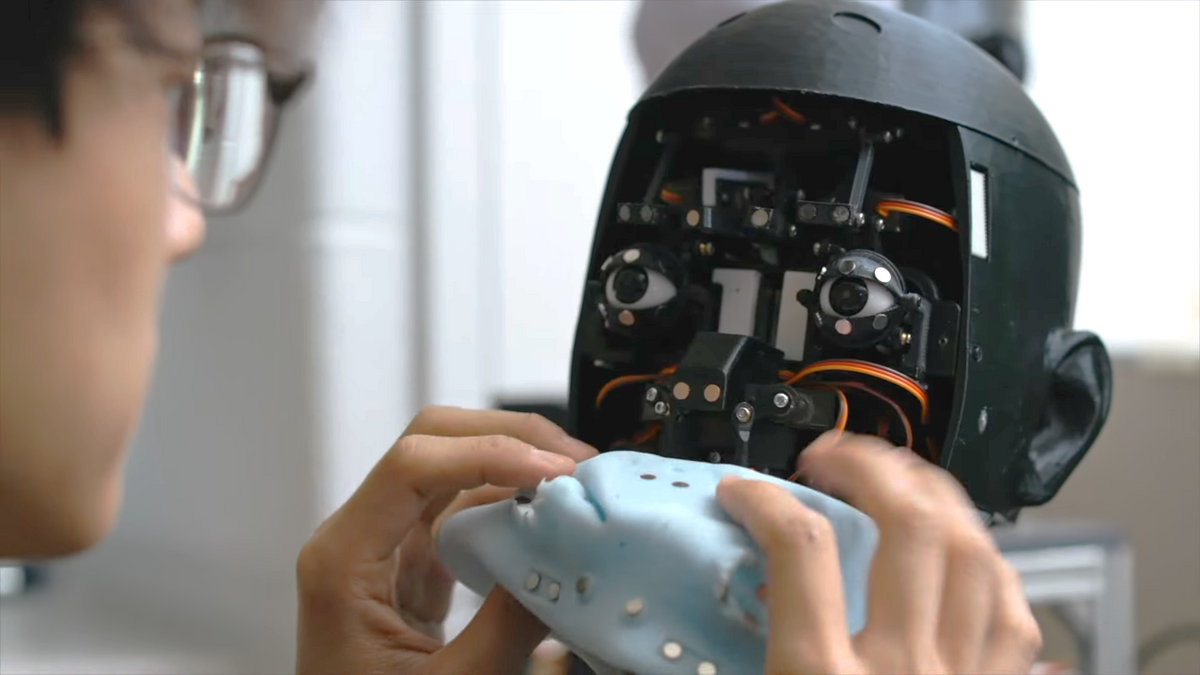GEORGE: Well that was a really stupid thing! You know what's going to
happen now?
JERRY: World's collide. (points at George)
GEORGE: Whe ... Well yeah!
There’s a famous Seinfeld episode. You know the show Seinfeld, right? The Jerry character spends much of his time hanging out with his best friend George, his ex-girlfriend Elaine, and his next-door neighbor, Kramer. At this point in the show’s 9-season plot arc, George is dating a woman named Susan, who none of his friends have met.
In this one particular episode—which has the title “The Pool Guy,” but everyone seems to remember it as “Independent George” —Elaine calls Jerry to see if he wants to go to a show. Jerry can’t and suggests calling Susan. The two women end up going to the show. George, when he finds out, is distraught that this has happened and outraged that his best friend has caused his worlds to collide. “It's just common sense,” George tells him. “Anybody knows, ya gotta keep your worlds apart!”
Google seems to have Independent George in mind with its new Google Plus “project.” (The actual name is “Google+” but as Danny Sullivan has already pointed out, that makes it almost impossible to punctuate sentences that include it.)
The heart of Google Plus is something called “Circles” (no pun intended). You pull together your contacts into distinct circles—family, poker buddies, fellow bike geeks, etc. You can then message them—there’s the equivalent of a Facebook Wall—comment on their activities, and generally do a lot of the things you do on your Facebook page.
In Google Plus, though, you seem to have, in effect, a distinct Facebook page for each circle. Your family doesn’t automatically see the crazy bike stunt video you just posted to your Bike Geeks circle. Your worlds, in other words, don’t have to collide—as they do on Facebook.
I asked Smitha Ballyamanda what she thought of Google Plus’s Circles? Ballyamanda is sort of a real-life George Costanza. She was the subject of an article in our June special report on social networking, “Separating Work, Friends, and Family on Facebook Isn't Easy: What happens when Facebook's notion of openness runs afoul of the desire for a private life.”
As journalist Cassandra Willyard explained it,
Born in south India, Ballyamanda has good reason to keep some information private. Many of her relatives, especially older ones, have conservative views about how a young woman should behave.
Ballyamanda, a petite beauty with thick black hair and big brown eyes, isn't shy about wearing clothes that flatter her figure. Like most young professionals, she socializes in bars and clubs with friends of both sexes. But she frets that a Facebook photo of herself and a male coworker having an innocent after-work drink could ricochet among her far-flung family members and blossom into a story with no basis in reality: "You're getting married and that was your engagement party," as she puts it.
To control who sees her profile information, Ballyamanda has assigned each of her 682 Facebook friends to one of six groups. At the bottom of the heap is "Zero Trust." This group can't access old status updates, messages from her friends, or many of her photo albums. At the top of the heap are the 10 or 15 people who constitute the "Inner Circle." "They have full-blown access," she says. "They see my page as I would see it."
In between are groups with intermediate levels of access. Those in either the "Coworker" or one of two "Guilty by Association" groups can see more of her profile than those in Zero Trust. And the "Paparazzi"—Ballyamanda's catch-all group for acquaintances and friends who haven't made the Inner Circle—can see a bit more still. Paparazzi members can see far more than Ballyamanda's own mother, who has been relegated to Zero Trust. "I tell her most of what's going on in my life," Ballyamanda says. "But I don't think she could handle the weight of my entire page."
The best Ballyamanda could manage on Facebook was concentric circles—the outermost circle sees almost nothing, and every circle sees what the previous circle sees plus more, until you get to the innermost circle, which sees everything. (In number of friends, the innermost circle is the smallest, but in Venn-diagram terms of what it can see, the innermost is really the all-encompassing outermost.)
Google Plus apparently lets the circles be whatever you want—overlapping or disjoint, as well as Ballyamanda-like supersets of one another. If you want both your family and poker buddies to see your cap-and-gown photo when you get your master's degree in electrical engineering, just post it in both circles, or create a new circle that includes both of the others.
When I called her, Ballyamanda hadn’t really looked at Google Plus and its circles yet (after all, it’s only a few hours old, and she’s a busy medical doctor), but she said she was pretty happy with her convoluted concentric circles. “They’re pretty easy to manage,” she said, “once you have them set up.” And of course, it’s not a serious alternative until all her family and friends who are currently Facebook start using Google Plus.
It’s interesting and perhaps inevitable that Google, which ran spectacularly afoul of some very legitimate privacy concerns with its Buzz project, should solve one of the fundamental privacy problems that haunts Facebook.
Indeed, it’s odd that Facebook hasn’t already created something like Circles already. In principle, Facebook Groups, a feature it rolled out last October, does this, but people don’t seem to be using it in this way. It remains to be seen whether people will use Google Plus circles this way too, of course. But Facebook Groups seems to be designed for very small groups that want to discuss one thing in particular, not, as Circles seem to be in Google Plus, a fundamental organizing principle of your social networking life.
My guess is that Google wins this particular point in its perpetual tennis match with Facebook. And if most social network users are like Smitha Ballyamanda—and if Facebook doesn’t make a major turn in a circle-like direction—there’s a distinct chance that it will be a set point, or even match point, in their competition.


